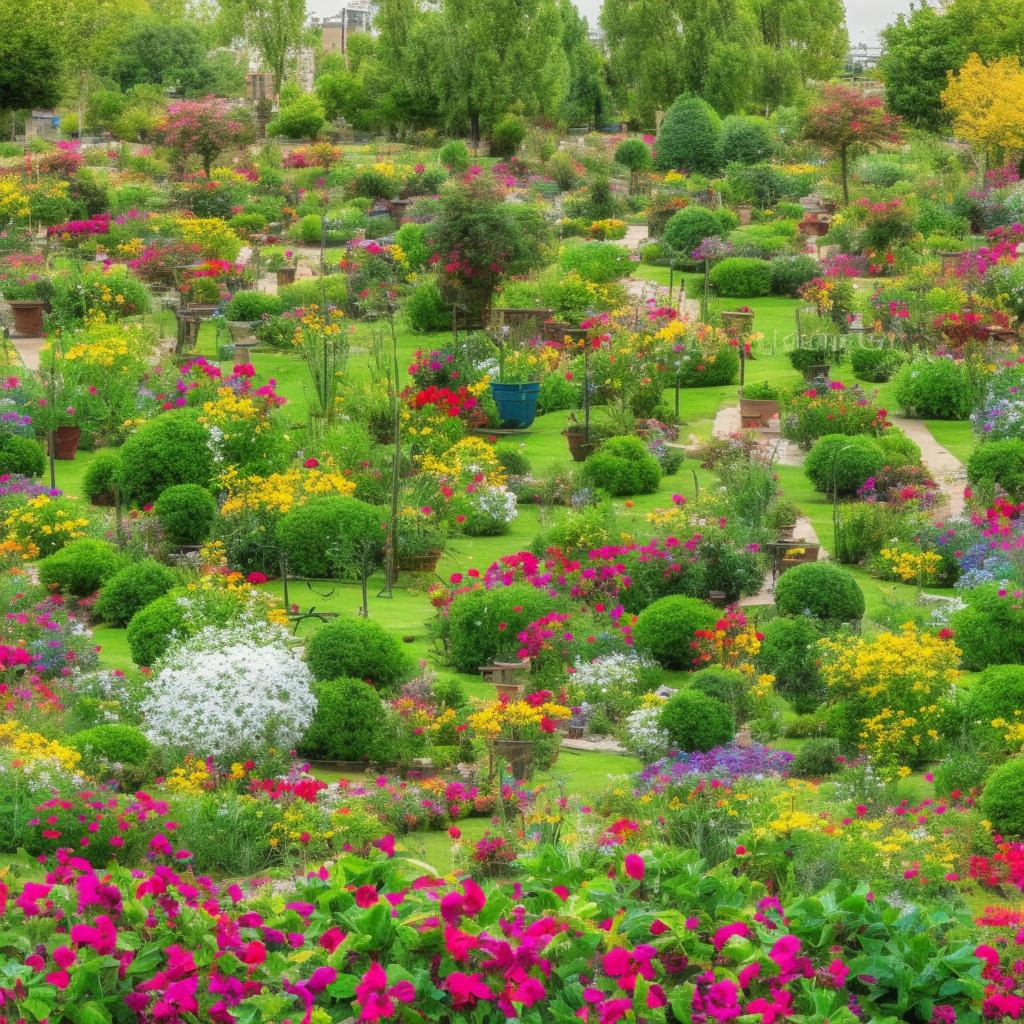In the midst of our fast-paced, technology-driven world, there lies a hidden sanctuary where healing and rejuvenation can be found amongst the vibrant colors and sweet scents of nature. This sanctuary is none other than the humble garden, a place where the therapeutic benefits of nurturing plant life can work wonders for both the body and the mind. Join us as we explore the profound healing power of gardening and uncover the countless ways in which tending to a plot of earth can bring balance, peace, and joy to our lives.
Heading 1: Connecting with Nature: The Psychological Benefits of Gardening
Gardening is more than just a hobby; it is a therapeutic activity that can have profound effects on our mental well-being. The act of tending to plants, nurturing them, and watching them grow can be incredibly rewarding and soothing. It is a way to connect with nature on a deeper level and experience a sense of calm and peace that is hard to find in our fast-paced world.
Studies have shown that gardening can have numerous psychological benefits, including reducing stress and anxiety, improving mood, and boosting self-esteem. Being surrounded by greenery and fresh air can have a rejuvenating effect on our minds and bodies. Whether you have a small balcony garden or a sprawling backyard, spending time in nature and getting your hands dirty can be a powerful form of therapy.
Heading 2: Cultivating Mindfulness Through Horticulture: How Gardening Promotes Stress Relief
Gardening has long been recognized as a therapeutic activity that can provide numerous benefits for the mind, body, and soul. Through the act of tending to plants and being present in nature, individuals can cultivate mindfulness and find relief from the stresses of everyday life.
One of the key ways in which gardening promotes stress relief is through the act of connecting with nature. Spending time outdoors, feeling the sun on your skin, and getting your hands dirty in the soil can all help to ground you in the present moment and provide a sense of calm. Additionally, the repetitive tasks involved in gardening, such as watering plants, pulling weeds, and pruning, can help to quiet the mind and focus your attention on the task at hand. This sense of mindfulness can lead to a reduction in stress and anxiety, as well as an overall sense of well-being.
Heading 3: Enhancing Physical Wellbeing: The Exercise and Health Benefits of Tending to a Garden
Gardening is not just a hobby; it is a therapeutic activity that can significantly improve physical wellbeing. The act of tending to a garden has been shown to have numerous health benefits that can enhance overall wellness. Some of the key advantages of gardening for physical wellbeing include:
- Increased physical activity: Engaging in gardening activities such as planting, weeding, and watering helps to promote physical movement, leading to improved flexibility, strength, and cardiovascular health.
- Stress reduction: Spending time in nature, surrounded by plants and flowers, has been proven to reduce stress levels and promote relaxation. The calming effects of gardening can help lower blood pressure and alleviate anxiety.
- Improved immune function: Exposure to soil and plants can strengthen the immune system and increase resistance to common illnesses. Gardening can also enhance mood and mental health, leading to a stronger overall sense of wellbeing.
In addition to the physical benefits, the act of tending to a garden can also have a positive impact on mental health. Gardening has been shown to improve cognitive function, boost self-esteem, and foster a sense of accomplishment. The creative and meditative aspects of gardening can help individuals feel more connected to the natural world and provide a sense of purpose and fulfillment. Overall, the healing power of gardening should not be underestimated, as it has the potential to transform both physical and mental wellbeing.
Heading 4: Tips for Creating a Therapeutic Garden Space: Designing Your Outdoor Sanctuary
When designing your outdoor sanctuary, consider incorporating a variety of sensory elements to create a truly therapeutic garden space. Think about the colors, scents, textures, and sounds that will help calm your mind and soothe your soul. Here are some tips for creating a healing garden:
- Choose plants with calming scents like lavender, chamomile, and mint.
- Create spaces for relaxation and meditation, such as a cozy seating area or a tranquil water feature.
- Include elements that attract wildlife, like bird feeders or butterfly bushes, to bring joy and connection to nature.
By designing your garden with intention and mindfulness, you can create a therapeutic outdoor space that promotes healing, relaxation, and overall well-being. Remember to listen to your own needs and preferences as you plan your garden, and don’t be afraid to get creative with your design choices. Your garden should be a reflection of your unique personality and a place where you can find peace and comfort.
In Conclusion
In conclusion, the healing power of gardening is undeniable. From reducing stress and anxiety to promoting physical activity and fostering creativity, getting your hands dirty in the garden can have a wide range of therapeutic benefits. So, whether you have a green thumb or are just starting out, consider adding some time in the garden to your self-care routine. You may just find that tending to your plants helps you tend to your own well-being as well. Happy gardening!




